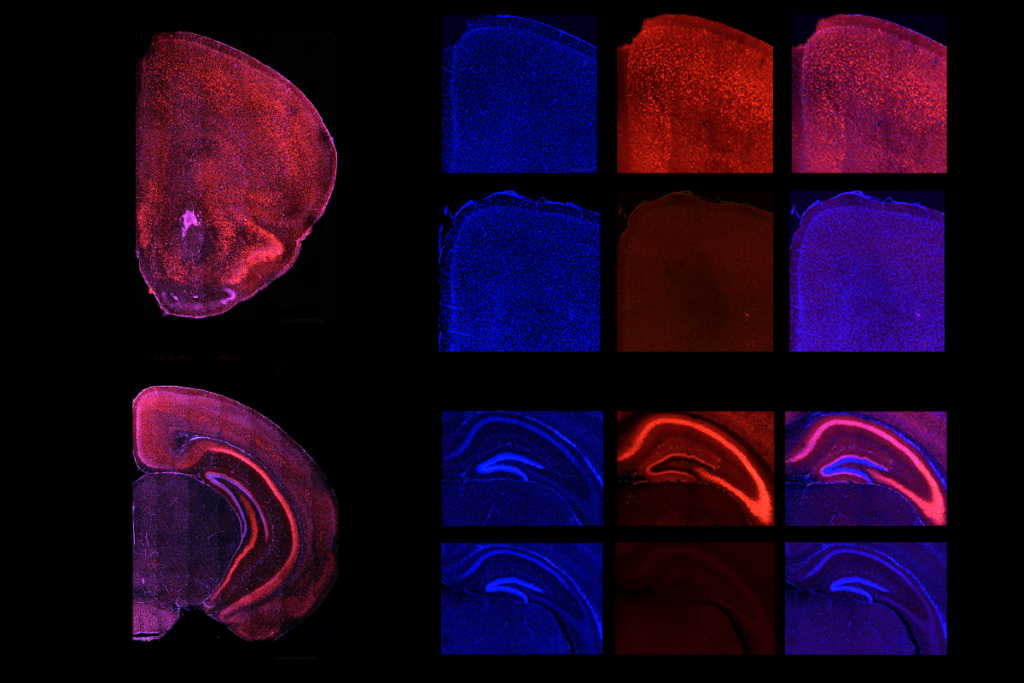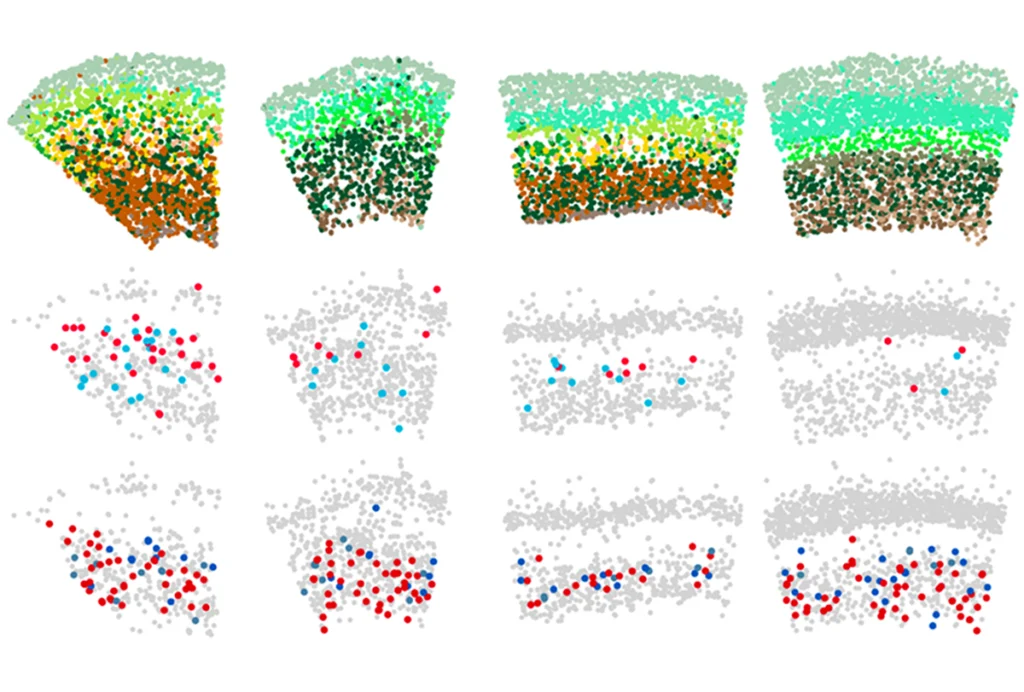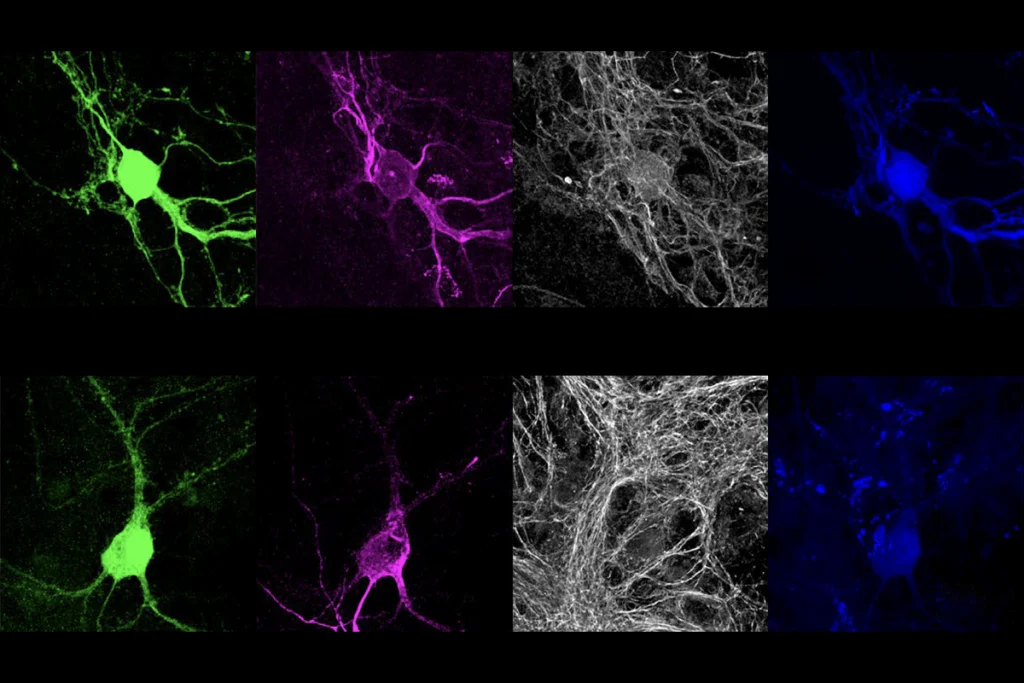Excitability
Recent articles
Ramping up cortical activity in early life sparks autism-like behaviors in mice
The findings add fuel to the long-running debate over how an imbalance in excitatory and inhibitory signaling contributes to the autism.

Ramping up cortical activity in early life sparks autism-like behaviors in mice
The findings add fuel to the long-running debate over how an imbalance in excitatory and inhibitory signaling contributes to the autism.
As circuits wire up, interneurons take cues from surrounding cells
The inhibitory cells’ development, diversity and abundance in the cortex is directed in part by pyramidal cells, a new preprint suggests.

As circuits wire up, interneurons take cues from surrounding cells
The inhibitory cells’ development, diversity and abundance in the cortex is directed in part by pyramidal cells, a new preprint suggests.
Top autism-linked genes join forces to shape synaptic plasticity
The protein products of ANK2 and SCN2A interact to regulate dendritic excitability.

Top autism-linked genes join forces to shape synaptic plasticity
The protein products of ANK2 and SCN2A interact to regulate dendritic excitability.
Explore more from The Transmitter
Lack of reviewers threatens robustness of neuroscience literature
Simple math suggests that small groups of scientists can significantly bias peer review.

Lack of reviewers threatens robustness of neuroscience literature
Simple math suggests that small groups of scientists can significantly bias peer review.
Dendrites help neuroscientists see the forest for the trees
Dendritic arbors provide just the right scale to study how individual neurons reciprocally interact with their broader circuitry—and are our best bet to bridge cellular and systems neuroscience.

Dendrites help neuroscientists see the forest for the trees
Dendritic arbors provide just the right scale to study how individual neurons reciprocally interact with their broader circuitry—and are our best bet to bridge cellular and systems neuroscience.
Two primate centers drop ‘primate’ from their name
The Washington and Tulane National Biomedical Research Centers—formerly called National Primate Research Centers—say they made the change to better reflect the breadth of research performed at the centers.

Two primate centers drop ‘primate’ from their name
The Washington and Tulane National Biomedical Research Centers—formerly called National Primate Research Centers—say they made the change to better reflect the breadth of research performed at the centers.